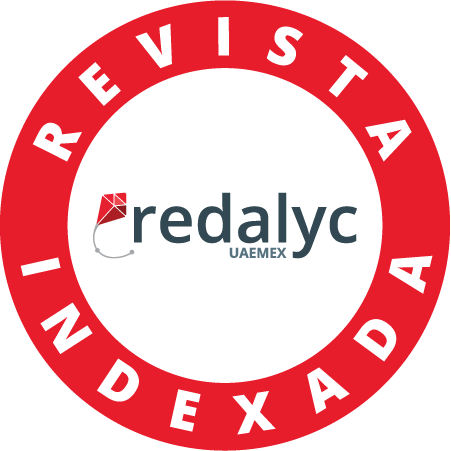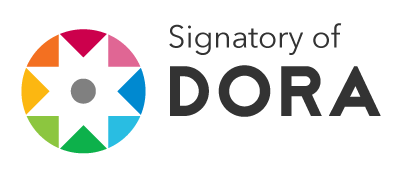About the Journal
Definition
Giruristi: Revista de Derecho Corporativo is a biannual publication of a scientific nature edited by the Faculty of Law and Social Sciences of the ESAN University. Its mission is to contribute to the knowledge of the science of law through the publication of original and unpublished academic research works specialized in Corporate Law and legal matters related to it, with national and international significance. Its vision is to become the main reference source of knowledge in Corporate Law at a regional and global level.
Focus and objective
Giruristi: Revista de Derecho Corporativo publish dogmatic and applied legal research under qualitative, quantitative and mixed approaches developed in Peru, Latin America and the world on corporate law, and related areas with the purpose of disseminating results that promote knowledge of the sciences of law for the improvement of society and sustainable development.
As a research journal, it publishes original and unpublished research articles and journals.
It is aimed at lawyers and researchers who are interested in deepening their knowledge of the corporate law.
Theme and scope
Giruristi: Revista de Derecho Corporativo is a specialized publication whose purpose is to generate knowledge about:
- The institutions that regulate the contractual and economic activities of human beings with the purpose of responsibly valuing the assets and subjective rights of the person. In this way, studies related to Civil Property Law can be developed.
- The branches of Corporate Law that affect the formation, organization, operation and control of companies and similar organizations, with the aim of promoting a culture of good corporate governance and social responsibility. It includes the areas of Commercial Law, Corporate Law, Commercial Law, Mergers and Acquisitions, and Labor Law.
- The relationship of the State and the function of planning socio economic development through Economic Constitutional Law, Regulatory Law or the rules relating to Concessions, as well as in matters of Free Competition, Financial and Banking Law or Consumer Protection.
In this way, promoted legal advice to consolidate private and public investment and the sustainable development of the commercial and economic activities of companies through compliance with the law.
The journal publishes theoretical and applied research focused on the study of corporate law and its connection with the different branches of law, as well as the social market economy, the functioning of the market, individual and business freedom, democracy, human rights, information technologies. information and law, economics and law, law and environment, philosophy and law, history of law, corporate social responsibility,
Manuscripts submitted to Giruristi: Revista de Derecho Corporativo must address current and innovative problems in law that contribute to current knowledge and contribute to reflection for the fulfillment and improvement of society in a globalized social market economy. They must offer new and original approaches and interpretations within the framework of respect for the law and the right for the economic and social sustainability of companies in accordance with the focus, objective, theme and scope of Giuristi.
Periodicity and frequency of publication
The journal is published twice a year: the January-June issue is published in June and the July-December issue in December.
Acceptability rate
The manuscripts submitted to Giruristi: Revista de Derecho Corporativo are subjected to blind peer journal. Its acceptance rate is greater than 90% of articles per issue. The journal usually publishes an average of seven articles per issue.
Shipping Guidelines
Submissions must be governed by section policies. Authors of articles and journals must register on the OJS platform with their username and password. The articles are treated anonymously as they are submitted to journal by a member of the editorial team and by blind peers who are experts in corporate law.
To submit articles and journals, you must follow the Submission Preparation Checklist and the instructions and guidelines established in the following.ient link:Shipping | Giuristi: Journal of Corporate Law (esan.edu.pe)
Submissions must be sent through the OJS platform, e-mail submissions are not accepted.
Sections and section policies
Each volume will be dedicated to one or two specific topics and will consist of the following sections:
- The editorial page
- A section intended for academic articles on an area or topic referring to a corporate, economic or related area.
- Eventually, a second section of academic articles from a second area that complements the previous one.
- Eventually, a miscellaneous section where current articles or articles of legal interest in general may appear.
- Eventually, a section dedicated to journals of articles, books or other academic works.
The journal accepts two types of contributions: articles and journals.
Articles
They are studies aimed at corporate law and related areas. The articles may be theoretical or empirical. They must be unpublished and cannot have their evaluation pending in other journals. The works will be journaled by evaluators through the double-blind system.
Article structure
- Article title (concise and informative)
- Names and surnames of the author, institutional affiliation, ORCID, institutional email.
- Summaries and keywords in three languages: Spanish, English, Portuguese. A minimum of four keywords must be assigned per article.
- Text of the work. The text must be a minimum of 10 and a maximum of 15 pages.
- Bibliographic references (corresponding to explicit citations in the text, with a minimum of 12 and maximum of 20 sources. It is suggested to include sources obtained from databases, such as Alicia de Concytec, Scopus, WoS or Scielo, as well as from Latin American and Peruvian journals like Giuristi herself, as long as the information is related to the content of the text).
The articles received will be evaluated before publication and must have the following characteristics:
- Constitute a contribution related to research in law as a response to the needs of society for the consolidation of entrepreneurship and business management.
- Be original.
- Be unprecedented.
- Be written in Spanish, English or Portuguese.
- The text must be in Microsoft Word, Times New Roman, font size 12, spaced one and a half times.
For more details, it is recommended to journal the article template:https://docs.google.com/document/d/1chQxL2d7QH1Y0isQqwzbV8KchhnqVzij/edit?usp=sharing&ouid=117010226952834692217&rtpof=true&sd=true
For the shipping process you can check the following link:https://drive.google.com/file/d/1u33cyQ-seQTmhCNgbfzT_V7A4Q4ntNMU/view?usp=sharing
It is appropriate to specify that it is not possible to publish two articles by the same author in the same issue of the journal since theAuthor can only publish one research per journal issue. Except in exceptional situations where the topic warrants it and the blind evaluators recommend it.
journals
Commented journals of Corporate Law books published in the last two years prior to the next issue of the journal. journals of classic legal books published in the 19th century and earlier are also permitted.
The journals received will be evaluated by the editor before publication and must have the following characteristics:
- Be unprecedented.
- Do not have pending evaluation in another journal.
- Be written in Spanish, English or Portuguese.
- The text must be in Microsoft Word, Times New Roman, font size 12, single spaced, up to 2 pages.
For more details, it is recommended to journal the journal template:
An author of a manuscript can only publish one work per issue of the journal. journals are not published where an author appears in two texts in the same issue of the journal.
Standards for bibliographical references
Giruristi: Revista de Derecho Corporativo receives manuscripts with citation format under the Chicago 17th edition style with footnotes and a bibliography at the end of the document, that is, under the “notes and bibliography” system.
For more details, it is suggested to journal the Guide to citations, references and bibliography in Chicago format:https://drive.google.com/file/d/1lZLS6lJazbLj-yNFc9aOLucd0EzYw513/view?usp=sharing
Editorial process
Items shipped to Giruristi: Revista de Derecho Corporativo They are subjected to an evaluation process that consists of the following phases:
Pre-evaluation phase: the editor receives the text and evaluates its acceptance based on the following criteria: a) relevance in relation to the scope of the journal, b) methodological sufficiency in the research; c) percentage of similarity with other texts already published (it may even be from another language). If the manuscript is overcome, it will proceed to the next phase, otherwise it will be rejected.
Evaluation phase: by blind journalers. In this phase the editor requests that anonymous and ad honorem journalers analyze the article. The journal is done under the "double blind" modality (Double-blind peer journal) through which referees and authors do not know the identity of each one in order to preserve anonymity in the journal process.
journalers can make the following recommendations:
- Recommend publication without modifications
- Recommend modifications to improve the sent text
- Recommend non-publication, if the manuscript contains insurmountable errors.
In case of disparity in the opinions, the text is sent to a third reviewer, whose recommendation defines the rejection or acceptance of the article. The editor will make the final decision based on the recommendations made by the journalers.
Correction phase: The final decision made by the editor will be informed to the author so that he can acquit the observations and incorporate the indicated modifications. The author must raise observations and/or make corrections within the period granted. The editor will decide if the corrected article is satisfactory or if a second revision is required.
In the event that the corrections are not sent within the indicated time, the manuscript may be published in a later issue, different from the one previously announced in order of acceptance.
Editing phase: If the article is accepted, it is edited and diagrammed. After which the DOI will be assigned and online publication will proceed.
Peer evaluation policy
In the Evaluation Phase, all manuscripts received will be refereed by two anonymous and ad honorem journalers, under the "double blind" modality (Double-blind peer journal) through which referees and authors do not know the identity of each one in order to preserve anonymity in the journal process. The journal requests made to the arbitrators give them a suggested deadline and ask for their commitment to avoid delays.
This phase takes between four and six months, since it includes journal time by the referees, the collection of observations by the authors, and final acceptance. In case of queries, the authors can write to giuristi@esan.edu.pe
Manuscripts received are considered accepted for publication when the evaluation process has been positively completed.
The journalers use a Matrix to rate manuscripts.
Post-Publication
For greater dissemination of the article in the academic community, it is suggested to the authors that, after the text is published, they share it on SSRN, ResearchGate, Academia.edu.
Flowchart
To see the flowchart that summarizes the phases of the editorial process, click click here.
Open access policy
Open Access Statement
Giruristi: Revista de Derecho Corporativo provides open access to its content. In order to assist in the elimination of the legal and technical barriers to access to research products and their exchange at a global level, the contents of Giruristi: Revista de Derecho Corporativo are in immediate open access and to the full text and does not and will not charge any fees to its readers for subscription or to authors for submitting, processing or publishing their articles.
Giruristi: Revista de Derecho Corporativo recognize and respect the copyright and grants use rights to others through the open license. In that sense, it allows immediate free access to intellectual creation and allows any user to read, download, copy, distribute and print it. Likewise, it allows searching and linking the full texts of the articles, tracking them for indexing, transferring them as data to software or using them for any other lawful purpose. We do not require users to register to read journal content.
Cape Town Declaration on Open Education: Unlocking the Promise of Open Educational Resources
Giuristi: Revista de Derecho Corporativo has signed a commitment to open education by providing unlimited access to all of its content.
License statement
All contents of the electronic journal are distributed under a use and distribution licenseCreative Commons Attribution 4.0 International (CC BY 4.0). For which:
You are free to:
- Share— copy and redistribute the material in any medium or format for any purpose, including commercially.
- Fit— remix, transform and build upon the material for any purpose, including commercially.
The licensor cannot revoke these freedoms as long as you follow the terms of the license.
Under the following terms:
- Attribution— You must give credit appropriately, provide a link to the license, and indicate if changes have been made. You may do so in any reasonable manner, but not in such a way as to suggest that you or your use are endorsed by the licensor.
- There are no additional restrictions— You cannot apply legal terms or technological measures that legally restrict others from making any use permitted by the license.
Notices:
You do not have to comply with the license for elements of the material in the public domain or where their use is permitted by a exception or limitation applicable.
No guarantees are given. The license may not give you all the permissions you need for your intended use. For example, other rights such as publicity, privacy, or moral rights. They may limit how you use the material.
https://creativecommons.org/licenses/by/4.0/
Copyright
The authors retain unrestricted copyright and publishing rights.
Archived
Giruristi: Revista de Derecho Corporativo employs the LOCKSS system to create permanent files for preservation and restoration purposes.
Good editorial practice policy
Editorial ethics
Giruristi: Revista de Derecho Corporativo assumes and promotes ethical editorial practices. Provides guidelines to avoid conflict of interest, to maintain ethical commitment and to detect similarities.
Conflict of interests
The Editorial Board, the authors and the evaluators declare that they respect the ethical principles of research and are free of conflicts of interest. Authors must indicate the funding sources linked to their research work, if applicable. The authors must indicate what the contribution of each author was, specifying the full names of each one in the text presented.
CRediT (Collaboration Roles)
Giruristi: Revista de Derecho Corporativo adheres to the taxonomy of academic collaboration roles (CRediT) that allows the identification and distinction of the contribution made by the co-authors of a research, specifying the responsibilities that each one assumed in the study process in order to assign the corresponding credits to the authors who participated in the research and in the communication of its results.
The CRediT taxonomy distributes participation roles into 14 typologies through which the authors of a study can obtain recognition in research.
Conceptualization: Ideas; formulation or evolution of overarching research goals and aims.
Data Curation: Management activities to annotate (produce metadata), scrub data and maintain research data (including software code, where it is necessary for interpreting the data itself) for initial use and later re-use.
Formal Analysis: Application of statistical, mathematical, computational, or other formal techniques to analyse or synthesize study data.
Funding Acquisition: Acquisition of the financial support for the project leading to this publication.
Investigation: Conducting a research and investigation process, specifically performing the experiments, or data/evidence collection.
Methodology: Development or design of methodology; creation of models.
Project Administration: Management and coordination responsibility for the research activity planning and execution.
Resources: Provision of study materials, reagents, materials, patients, laboratory samples, animals, instrumentation, computing resources, or other analysis tools.
Software: Programming, software development; designing computer programs; implementation of the computer code and supporting algorithms; testing of existing code components.
Supervision: Oversight and leadership responsibility for the research activity planning and execution, including mentorship external to the core team.
Validation: Verification, whether as a part of the activity or separate, of the overall replication/reproducibility of results/experiments and other research outputs.
Visualization: Preparation, creation and/or presentation of the published work, specifically visualization/data presentation.
Writing – Original Draft Preparation: Preparation, creation and/or presentation of the published work, specifically writing the initial draft (including substantive translation).
Writing – Review & Editing: Preparation, creation and/or presentation of the published work by those from the original research group, specifically critical review, commentary or revision – including pre- or post-publication stages.
Ethics commitment
Giruristi: Revista de Derecho Corporativo practice ethics in academic publications for which it adheres to the Principles of Transparency and Best Practices in Academic Publications of Committee on Publication Ethics (Code of Conduct and Best Practices Guidelines for Journals Editors, COPE. This ethical commitment has been signed by all the actors involved in the management and publication of the articles.
About unethical behavior
Any person can inform the editor of the presence of unethical conduct. The journal will respond to any claim, without considering the publication time of the original. Complaints must be supported by evidence in order to initiate an investigation. All claims and allegations against unethical conduct or misconduct will be considered with the utmost seriousness.
Similarity detection
The journal uses Turnitin software to detect plagiarism.
Disclaimer
The authors are responsible for the content of the works and do not express the position or opinion of the Editorial Team or Esan University.
Manuscripts that are not accepted are returned to the authors.
Illustrations, charts and tables that are not the author's must indicate their source. The journal assumes that the author has requested and received the corresponding reproduction permissions and is not responsible for the unauthorized use of them, nor for the legal consequences that may arise due to infringement of intellectual property rights.
Open Science Compliance
The journal is linked to open science practices. Informs authors about publishing data to various repositories.Authors must declare that they agree with open science practices.
Languages
The manuscript can be written in Spanish, English and Portuguese. Translation of titles, summaries and keywords into the three languages should also be considered.
Statistics
Google Scholar: https://scholar.google.com/citations?hl=es&authuser=3&user=jsTxJHYAAAAJ
Sponsors
- Vice-rector for Research at Esan University
- Corporate Law Degree from the Faculty of Law and Social Sciences of Esan University.
ARTICLE SUBMISSIONS AND journalS
Authors who wish to submit their manuscript mustlog in, for whichThey will create your username and password inthe site, recordingnames and surnames, academic affiliation (university with which you identify yourself), country, email, acceptance of the use of personal data provided and other information.









